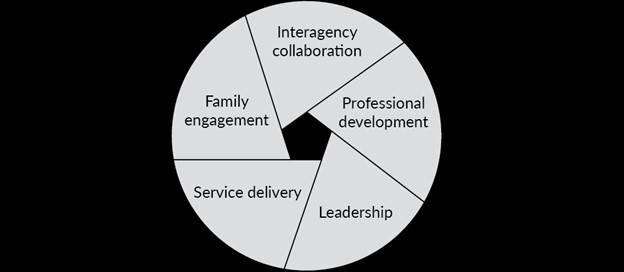Lessons learned from PROMISE (Promoting Readiness of Minors in Supplemental Security Income)

An open access special issue of the Journal of Vocational Rehabilitation (JVR) provides a comprehensive review of PROMISE (Promoting Readiness of Minors in Supplemental Security Income), a joint initiative of U.S. federal agencies the Social Security Administration and Departments of Education, Health and Human Services, and Labor. PROMISE funded evidence-based services and interventions to improve educational and vocational outcomes for youth with disabilities who receive Supplemental Security Income (SSI) in an effort to reduce long-term reliance on SSI benefits.
Guest editors Thomas Golden, EdD, CRC, Executive Director of the K. Lisa Yang and Hock E. Tan Institute on Employment and Disability, ILR School, Cornell University, Ithaca, NY, U.S.A, and Catherine Anderson, Ph.D., CRC, University of Wisconsin-Madison, Madison, WI, U.S.A, organized a collection of articles that evaluate PROMISE strategies and make policy and programmatic recommendations.
Rolled out in 2013, PROMISE conducted six model demonstration projects (MDP) across 11 states to provide educational, vocational, and other services to 13,000 youth with disabilities (aged 14–16) receiving SSI and their families. The program was designed to make better use of existing resources by improving service coordination among state and local agencies. A significant body of data was amassed during the six-year experiment that establishes its success and can be used to shape future efforts.
"A key PROMISE takeaway, confirming earlier research, is that once youth and families are engaged, interest-based job placement, case management supports, and job readiness training are significant predictors of success," said Dr. Anderson. "Counseling about benefits, work incentives, and financial empowerment is also central to the employment process."
The PROMISE experience sheds light on why evidence-based employment services delivered through coordinated case management are important. There is a growing number of young people with disabilities whose families live in poverty across the U.S.. According to a 2017 report from the U.S. General Accountability Office (GAO), between 2000 and 2016 there was a 44 percent increase in SSI-eligible youth with disabilities. The GAO found that only a small percentage of these individuals were engaged with public vocational rehabilitation (VR) programs, despite the evidence that engaging with VR leads to better outcomes.
Systems serving this population are complex and challenging to maneuver. Intensive case management support is needed to aid these individuals and their families to navigate access the services they need. PROMISE showed that intentional systems coordination aimed at enabling access and engagement in existing employment support services is definitely needed.
"The current U.S. domestic disability and employment policy framework does not include intensive and targeted case management for this population. Promoting post-school transition success requires stronger connections, collaboration, and a peer- and family-centered focus," explained Dr. Golden.
PROMISE found that services and supports must be customized and designed to flexibly meet individual needs. For example, the Ticket to Work and Self-Sufficiency program, which is primarily targeted toward a working-aged adult population, does not provide a vehicle to support successful post-school movement of youth who receive SSI. In addition, because issues associated with disability and poverty are often a driving force in the decision-making process for youth who receive SSI and their families, basic needs must often be addressed prior to and during the before self-development and employment process.
"This special issue on the PROMISE demonstration research projects has been an extremely important investment in helping to understand how to help individuals with significant disabilities, who are highly dependent on federal subsidies, become more independent through competitive (open) employment opportunities," commented JVR's Editor-in-Chief Paul H. Wehman, Ph.D., Virginia Commonwealth University, Rehabilitation Research and Training Center on Workplace Supports, Richmond, VA, U.S.A. "Several different important themes evolved such as the importance of family, early engagement with work experiences and vocational rehabilitation, and targeted case management services. The U.S. invested a large amount of money in this research and the Journal of Vocational Rehabilitation and IOS Press are pleased to share these exciting results that will inform policymakers, legislators, and researchers on this challenging topic."
More information: Journal of Vocational Rehabilitation Thomas Golden, EdD, and Catherine Anderson, PhD, CRC, Journal of Vocational Rehabilitation, Volume 51, Issue 2 published online at content.iospress.com/journals/ … -rehabilitation/51/2
Provided by IOS Press


















